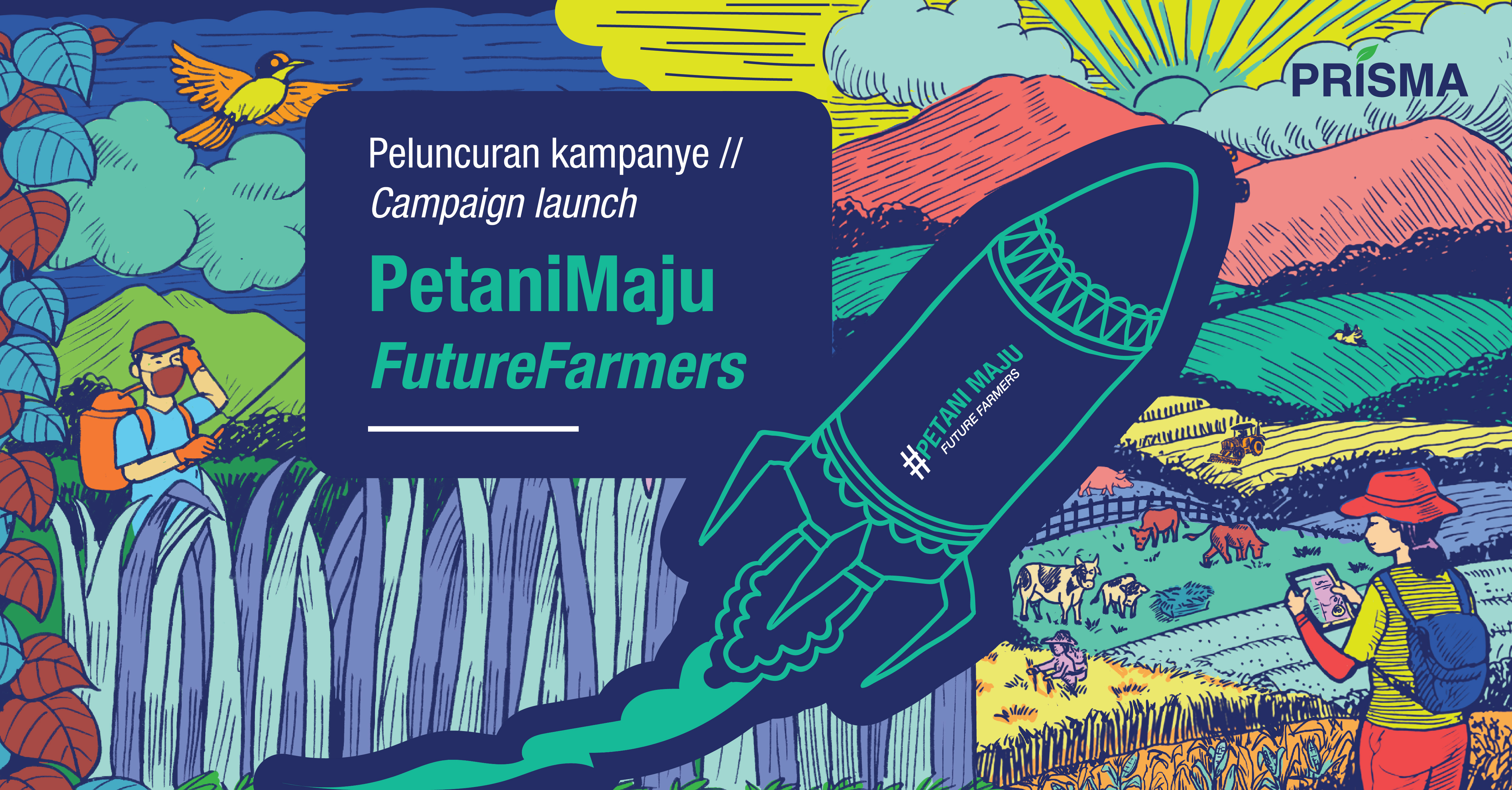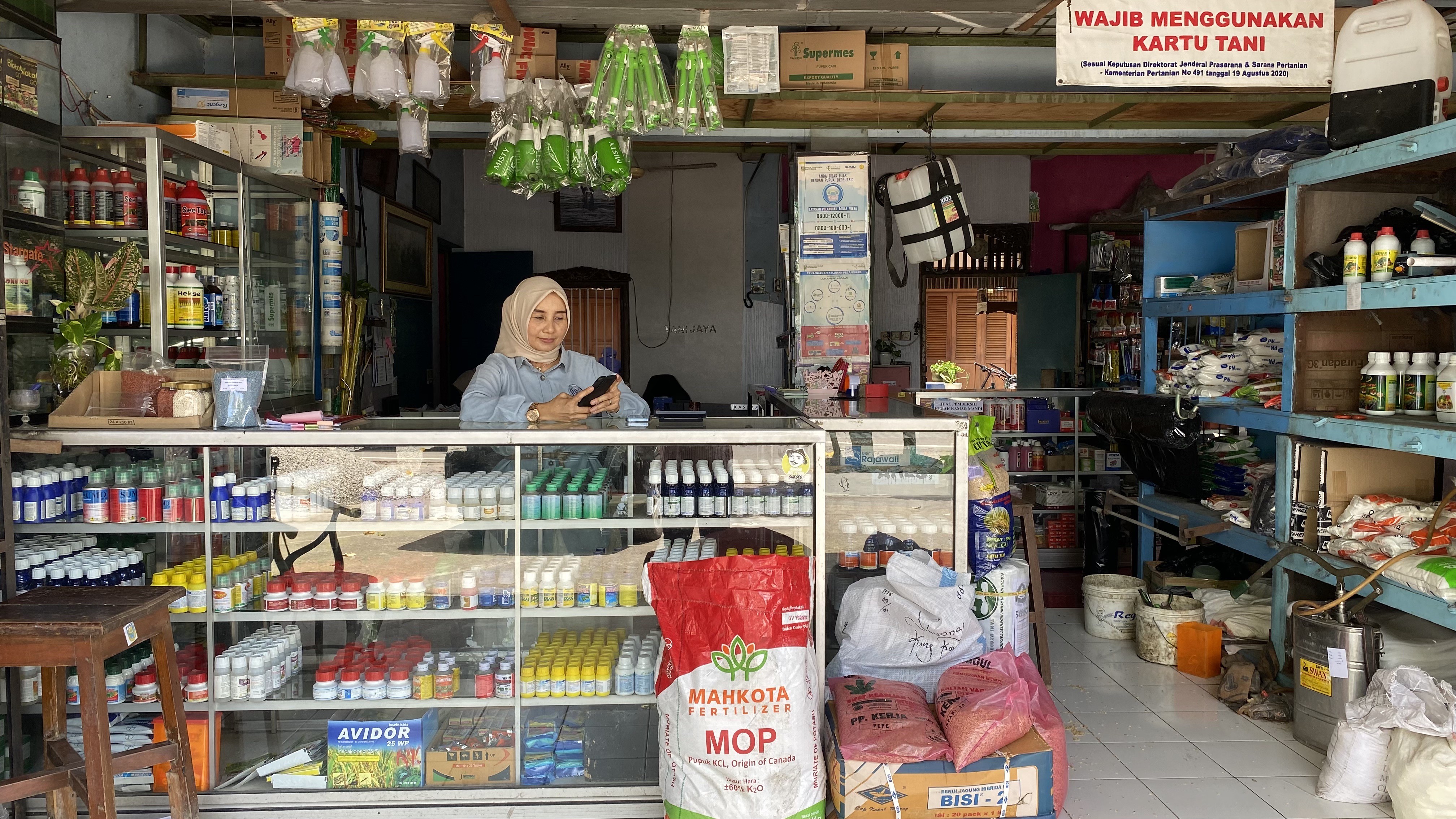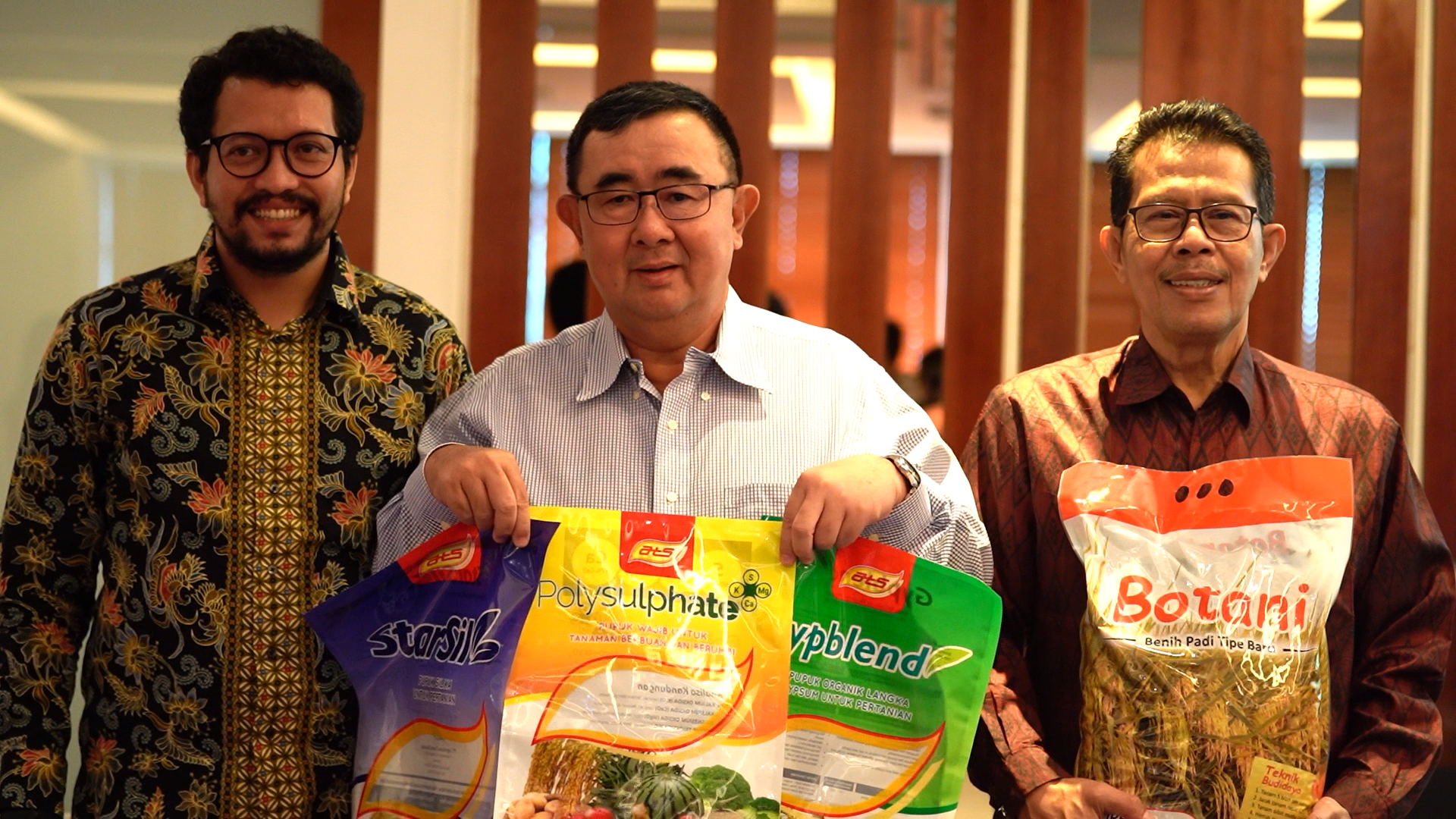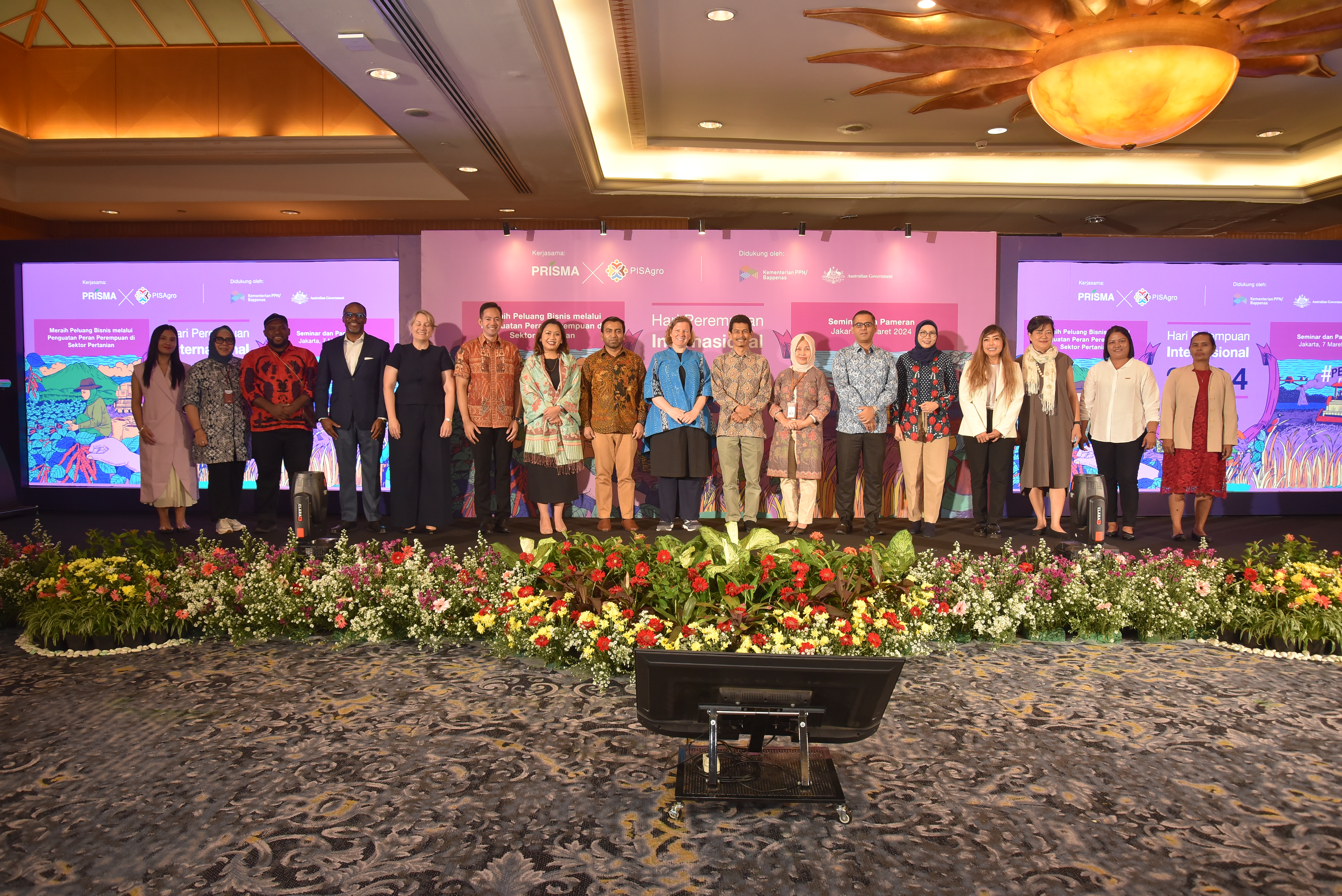What is a Future Farmer?
A farmer that has access to and is using products, services and technologies that can increase productivity and incomes and build resilience to climate change.
Products, services and technologies include high-yielding climate-smart rice seeds that use less water and fertiliser, high-quality and affordable animal feed that reduces rearing time and women's workloads and finance and technology apps and services that can increase the productivity of agri-kiosks and the farmers they serve.
Increased productivity benefits smallholder farming households and the communities they live in.
PRISMA's research found that when farmers’ income increases, they re-invest in their agriculture, into small business enterprises and their children’s education – creating stronger communities.
A survey conducted by PRISMA detailed on page 12, engaged 166 farmers from Central and East Java to assess the social impact of income growth. Notably, a significant portion of respondents (31%) prioritized investing or reinvesting in economic activities, alongside daily sustenance (22.5%) and children's education (8.55%). This finding underscores the crucial role income increases can play in expanding economic activities in and improving household and community well-being.
Supporting climate-resilient farmers
Climate-resilient agricultural inputs and practices can improve productivity, mitigate emissions and bolster farmers' ability to withstand extreme weather events. For instance, organic mineral-based fertilisers curb emissions and regenerate soils, while drought-tolerant, high-yielding maize seeds offer resilience against drier weather conditions.
The campaign aims to uncover and disseminate climate-smart technologies and agribusiness experiences, while also introducing products and innovations to smallholder farmers.
Building inclusive markets
Marginalised groups are often involved in agriculture yet miss out as consumers on products and services that could improve productivity. Agribusinesses can bridge this gap by researching and targeting different customer segments.
The campaign shares information to support marketing teams, company field staff, and government extension workers in reaching farmers more effectively. For example, this guidebook for marketing teams, agronomists, and field staff shares practical tips for agribusinesses on improving access to information for women farmers.
Through effective behaviour change
PRISMA has observed and supported companies in adapting their outreach and better supporting farmer behaviour change through this process. For example, supporting businesses to shift from short-term hard-selling strategies for fertilisers and pesticides to education-based marketing that builds trust with customers, increases their success rate and productivity and results in repeat customers.
In the fertiliser sector especially PRISMA found that fertiliser companies and distributors must engage in good product promotional and marketing strategies and provide regular information on good agricultural practices and proper fertiliser application. Only by doing this would farmers understand the benefits of judicious use of fertiliser and experience improved productivity.
The campaign shares behaviour change strategies specific to critical agricultural commodities for productivity and growth.





















